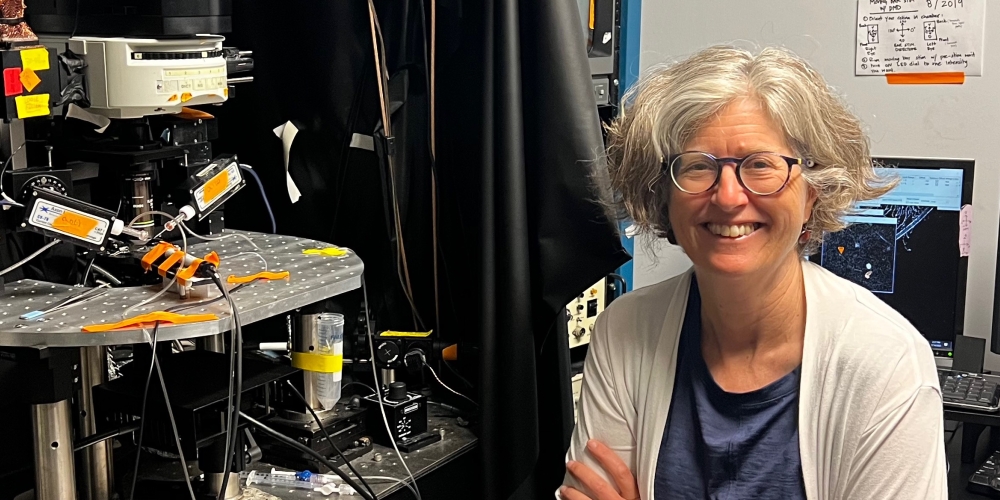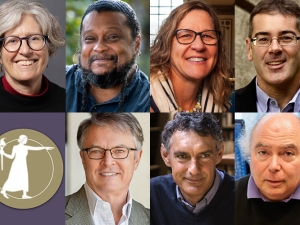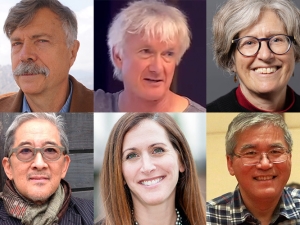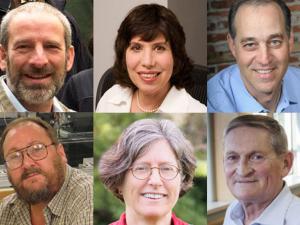

Research Bio
Marla Feller is the Paul Licht Distinguished Professor in Biological Sciences. Research done in the Feller lab uses a combination of physiology and advanced imaging techniques to study the role of activity in the development of functional neural circuits in the retina.
Professor Feller is a recipient of the 2020 Distinguished Teaching Award.
Research Expertise and Interest
neurophysiology, developmental neuroscience
In the News
National Academy of Sciences Elects Seven From UC Berkeley
Six New Fellows of American Academy of Arts & Sciences
Six UC Berkeley faculty elected AAAS fellows
Four projects garner $1.7 million from federal BRAIN initiative
Featured in the Media
While mammals are functionally blind at birth, their eyes see much more in the womb than previously believed, according to a new study by a team of Berkeley researchers. The study, conducted in mice and monkeys, found that light-sensitive cells in the retina, called ipRGCs (intrinsically photosensitive retinal ganglion cells), relay information about ambient light to different parts of the brain. "In the past, people demonstrated that these light-sensitive cells are important for things like the development of the blood vessels in the retina and light entrainment of circadian rhythms, but those were kind of a light on/light off response, where you need some light or no light," says molecular and cell biology professor Marla Feller, a member of Berkeley's Helen Wills Neuroscience Institute and the study's senior author. "This seems to argue that they are actually trying to code for many different intensities of light, encoding much more information than people had previously thought." For more on this, see our press release at Berkeley News. Stories on this topic appeared in dozens of sources around the world, including News-Medical, India Times, Iran Daily, and Baby Gaga.




